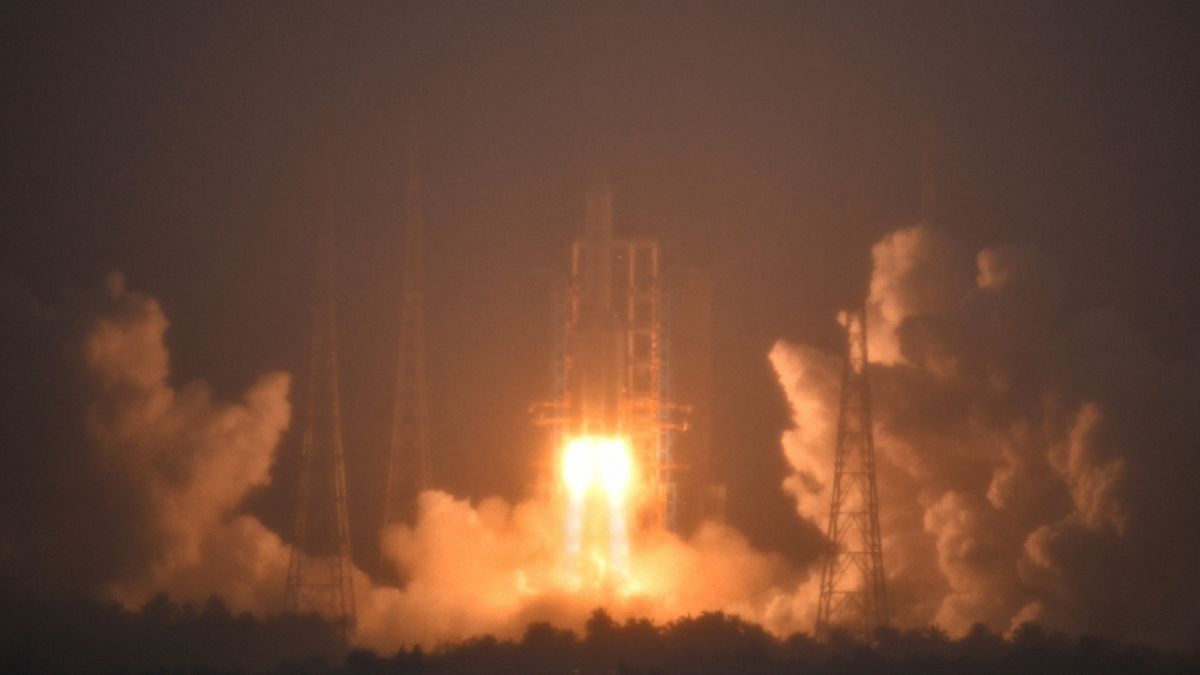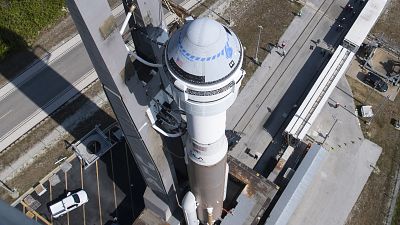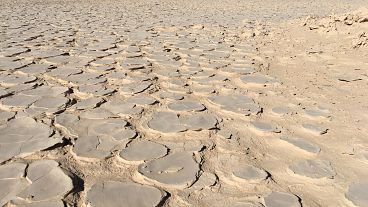China has dispatched lunar probe Chang'e-6 to the far side of the Moon where it will collect samples to return to Earth.
China has launched a lunar probe to land on the far side of the Moon and return with samples from the less-explored region.
The rocket carrying the Chang'e-6 lunar probe, named for the Chinese mythical moon goddess, lifted off on Friday as planned from the Wenchang launch centre.
The lunar probe separated from China's biggest rocket, the Long March-5, some 35 minutes later as technicians on the ground applauded.
Launch mission commander Zhang Zuosheng took to a podium at the front of the room and said the launch had gone off exactly as planned and the spacecraft was on its set trajectory.
"I declare this launch mission a complete success," Zhang said.
Huge numbers of people crowded Hainan's beaches to view the launch, which comes in the middle of China’s five-day May Day holiday. The event was televised live.
China plans future space missions
China hopes to put astronauts on the moon by 2030 as it advances its space exploration programme to compete with the US.
Three Chinese lunar probe missions are planned in the next four years.
China returned samples from the moon's near side in 2020 for the first time since the US Apollo programme that ended in the 1970s. Analysis of the samples found they contained water in tiny beads embedded in lunar dirt.
Also in the past week, three Chinese astronauts returned home from a six-month mission on the country's orbiting space station after the arrival of its replacement crew.
China was excluded from the International Space Station due to US concerns over the Chinese military's control of its space programme.
Faced with such limitations, China has expanded cooperation with other countries and agencies.
The latest mission carries scientific instruments from France, Italy and the European Space Agency in cooperation with Sweden. A small Pakistani satellite is also on board.



